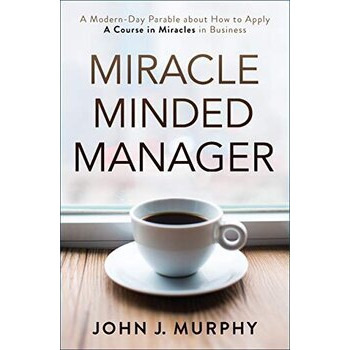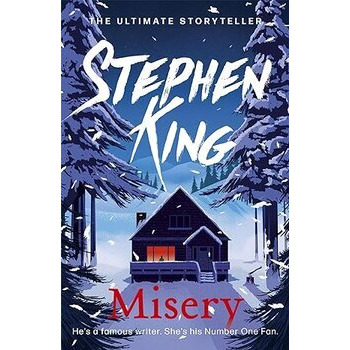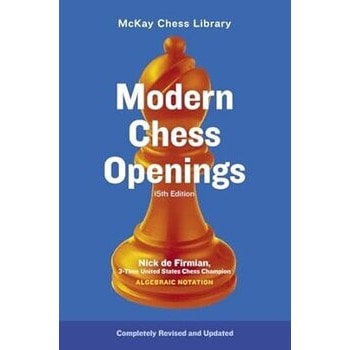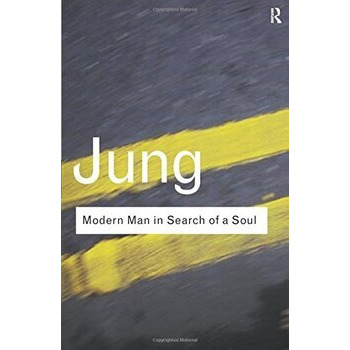Minor Detail
Minor Detail by Adania Shibli is a powerful and thought-provoking novel that explores the complex and painful history of the Israeli-Palestinian conflict. The story is told from two perspectives: one of a young Palestinian woman living in the present day, and the other of a woman who was a victim of a violent incident decades earlier. The narrative begins with a disturbing event that occurred during the 1948 Arab-Israeli War when a Palestinian woman was raped and killed by Israeli soldiers. The novel examines the long-lasting emotional and psychological impacts of this event on both the people involved and their descendants. Through its exploration of trauma, memory, and identity, Minor Detail sheds light on the personal and political consequences of violence, and the struggle for justice and reconciliation. The book is a poignant reflection on the scars of history, offering a raw and intimate view of the conflict’s human cost.
Miracle Minded Manager
Miracle Minded Manager by John J. Murphy is a transformative business and leadership book that blends spiritual principles with practical management strategies. Inspired by A Course in Miracles, Murphy tells the story of Jack MacDonald, a corporate executive who undergoes a profound personal and professional awakening. Through Jack’s journey, the book explores themes of mindfulness, servant leadership, emotional intelligence, and the power of love and forgiveness in the workplace. Murphy provides actionable insights on how shifting from fear-based thinking to a mindset of trust and collaboration can lead to success, both in business and in life. Engaging and thought-provoking, Miracle Minded Manager is ideal for leaders seeking a more conscious and holistic approach to management.
Mirror, Mirror
Mirror, Mirror by Jen Calonita is a dark retelling of Snow White with the intriguing twist: What if the Evil Queen poisoned the prince instead? In this version of the classic fairy tale, Snow White must step into a more active role as she uncovers secrets about her kingdom, her family, and the magic that shapes them all. With the prince lying lifeless and the Queen’s grip on power growing stronger, Snow must rally allies and find the strength within herself to challenge the narrative she's always believed. This Twisted Tale is filled with suspense, heart, and a fresh look at the line between good and evil.
Mirror, Mirror
*Mirror, Mirror* by Jen Calonita is a young adult fantasy novel that offers a fresh twist on classic fairy tales. The story is set in the world of the *Ever After High* series and centers around **Isabella (Izzy)**, the daughter of the Evil Queen from *Snow White*. Izzy, despite her mother's dark legacy, is determined to carve her own path and find a way to prove that she is not destined to follow in her mother's wicked footsteps. However, when she stumbles upon a magical mirror, she is faced with the challenge of breaking free from the expectations and pressures that come with her family’s infamous name. The novel explores themes of identity, destiny, and self-discovery as Izzy grapples with the weight of her family's legacy and her desire to create her own future. With a blend of magic, adventure, and introspection, *Mirror, Mirror* provides an engaging take on the struggle between good and evil, making it a captivating read for fans of fairy tale retellings and young adult fantasy.
Misconduct
Misconduct by Penelope Douglas is a romance novel that follows the story of two characters, Tate and Easton. Tate is a college student who finds herself caught in a complicated relationship with Easton, a charismatic and older professor. Their attraction is undeniable, but their connection is marred by forbidden circumstances, as Easton is her professor and has a reputation for being a troublemaker. The novel explores themes of power dynamics, tension, and desire, as both characters are forced to confront their emotions, boundaries, and the consequences of their actions. As the story unfolds, the line between right and wrong becomes blurred, leading to a steamy and intense exploration of love, trust, and personal growth.
Misery
"Misery" by Stephen King is a psychological horror novel that tells the gripping story of Paul Sheldon, a bestselling author who becomes trapped by his "number one fan," Annie Wilkes, after a car accident. Recovering in her remote home, Paul soon discovers that Annie is not just a devoted reader but an unstable and dangerous woman who demands he write a new novel featuring her favorite character, Misery. As Paul struggles to survive both physically and psychologically, the novel explores themes of obsession, captivity, and the dark side of fandom. King's masterful storytelling creates a tense and claustrophobic atmosphere, making "Misery" a chilling examination of the relationship between creator and admirer, and the lengths to which one will go for art.
Mistaken Identity
Mistaken Identity by Stephanie R. Caffrey is a contemporary romance novel that revolves around the themes of mistaken identities, secrets, and unexpected connections. The story follows the main character, who, due to a case of mistaken identity, gets involved with someone she initially thinks is someone else. As the relationship develops, both characters must confront their struggles, secrets, and the tension that arises from their misunderstandings. The novel explores themes of trust, vulnerability, and the challenges of forging deep connections when identity and intentions are in question. Mistaken Identity is a romantic and engaging tale about the complexities of relationships and the surprises that life can bring.
Mistress of All Evil
*Mistress of All Evil* by Serena Valentino is the fourth book in the *Villains* series, which reimagines classic Disney villain stories from the perspective of the villains themselves. In this novel, the story centers on **Maleficent**, the iconic villain from *Sleeping Beauty*. The book delves into her backstory, revealing the reasons behind her transformation into the feared and misunderstood character we know. It explores her life before she became the "Mistress of All Evil," shedding light on her emotional turmoil, personal tragedies, and the betrayals that shaped her. As the story unfolds, readers gain a deeper understanding of Maleficent’s motivations and the complexities of her character, offering a more sympathetic perspective on the traditionally malevolent figure. *Mistress of All Evil* combines fantasy, character exploration, and a twist on a beloved classic, giving Maleficent her moment in the spotlight as a multi-dimensional figure rather than just a villain. The book is a captivating read for fans of Disney and those who enjoy stories that humanize classic antagonists.
Mockingjay
*Mockingjay* by Suzanne Collins is the final book in *The Hunger Games* trilogy, following Katniss Everdeen as she becomes the symbol of the rebellion against the Capitol. After surviving the previous conflicts, Katniss is thrust into the heart of the revolution, torn between her personal struggles and her role as the "Mockingjay," the symbol of resistance. As the war intensifies, Katniss must navigate complex moral decisions, grapple with the consequences of violence, and face the ultimate cost of rebellion. With themes of sacrifice, survival, and the psychological impact of war, *Mockingjay* concludes the series with a poignant exploration of power, trauma, and the price of freedom.
Modern Chess Openings: 15th Edition
"Modern Chess Openings: 15th Edition" by Nick De Firmian is a comprehensive guide to chess openings, serving as a valuable resource for players looking to expand their repertoire and improve their game. This edition provides detailed coverage of various opening strategies, including the latest trends and developments in chess theory. De Firmian breaks down complex concepts into understandable segments, offering insights into the strategic ideas behind each opening. The book includes annotated games and practical tips, making it suitable for both beginners and advanced players. With its clear explanations and extensive range of openings, this edition of "Modern Chess Openings" is a must-have for anyone serious about mastering the art of chess.
Modern Islamic Thought in a Radical Age
*Modern Islamic Thought in a Radical Age* by Muhammad Qasim Zaman is an insightful exploration of Islamic intellectual history and the evolving landscape of Islamic thought in the modern world. The book examines how Islamic scholars, reformers, and thinkers have responded to the challenges posed by modernity, colonialism, and radical ideologies. Zaman analyzes the intellectual currents that have shaped contemporary Islamic thought, focusing on the tensions between traditionalism and reform, as well as the rise of radicalism in the 20th and 21st centuries. He addresses the impact of political movements, the role of Islamic institutions, and the influence of Western ideas on Muslim societies. Through this, Zaman offers a nuanced view of how Muslims have navigated the complexities of modern life while grappling with questions of identity, faith, and social change. The book is a valuable resource for those seeking a deeper understanding of the intellectual currents that have shaped the modern Muslim world, and the ways in which Islam has interacted with global political and cultural forces.
Modern Man in Search of a Soul
Modern Man in Search of a Soul by Carl Gustav Jung is a collection of essays in which Jung explores the psychological and spiritual challenges faced by individuals in the modern world. The book delves into the growing disconnection between people and their deeper, unconscious selves, as well as the increasing dominance of rationalism and materialism in contemporary society. Jung discusses key concepts such as the unconscious mind, dreams, the integration of the psyche, and the importance of self-understanding. He also explores the role of religion, therapy, and the need for individuals to reconnect with their inner life and personal wholeness. This work is an accessible introduction to Jung's theories, particularly for those seeking to understand the human psyche and its place in modern life.












